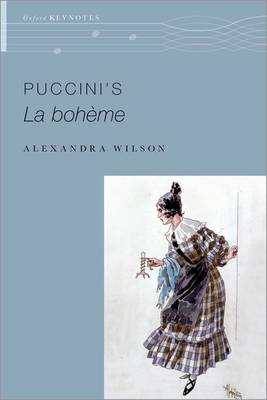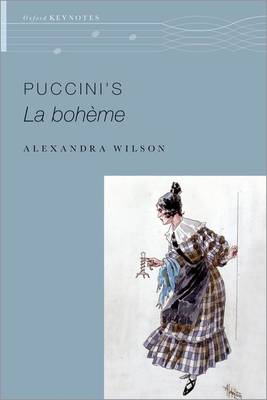
- Afhalen na 1 uur in een winkel met voorraad
- Gratis thuislevering in België vanaf € 30
- Ruim aanbod met 7 miljoen producten
- Afhalen na 1 uur in een winkel met voorraad
- Gratis thuislevering in België vanaf € 30
- Ruim aanbod met 7 miljoen producten
Zoeken
Puccini's La Boheme
Alexandra (Professor of Music and Cultural History, Professor of
€ 93,45
+ 186 punten
Omschrijving
This cultural history of La Bohème traces its rise to global fame. It demonstrates how the opera's prominence in popular culture, the inventiveness of its directors and performers, and its enduring themes of gender, poverty, and nostalgia have captured audiences' imagination for more than 120 years.
Specificaties
Betrokkenen
- Auteur(s):
- Uitgeverij:
Inhoud
- Aantal bladzijden:
- 172
- Reeks:
Eigenschappen
- Productcode (EAN):
- 9780190637880
- Verschijningsdatum:
- 12/01/2021
- Uitvoering:
- Hardcover
- Afmetingen:
- 220 mm x 148 mm
- Gewicht:
- 314 g

Alleen bij Standaard Boekhandel
+ 186 punten op je klantenkaart van Standaard Boekhandel
Beoordelingen
We publiceren alleen reviews die voldoen aan de voorwaarden voor reviews. Bekijk onze voorwaarden voor reviews.











